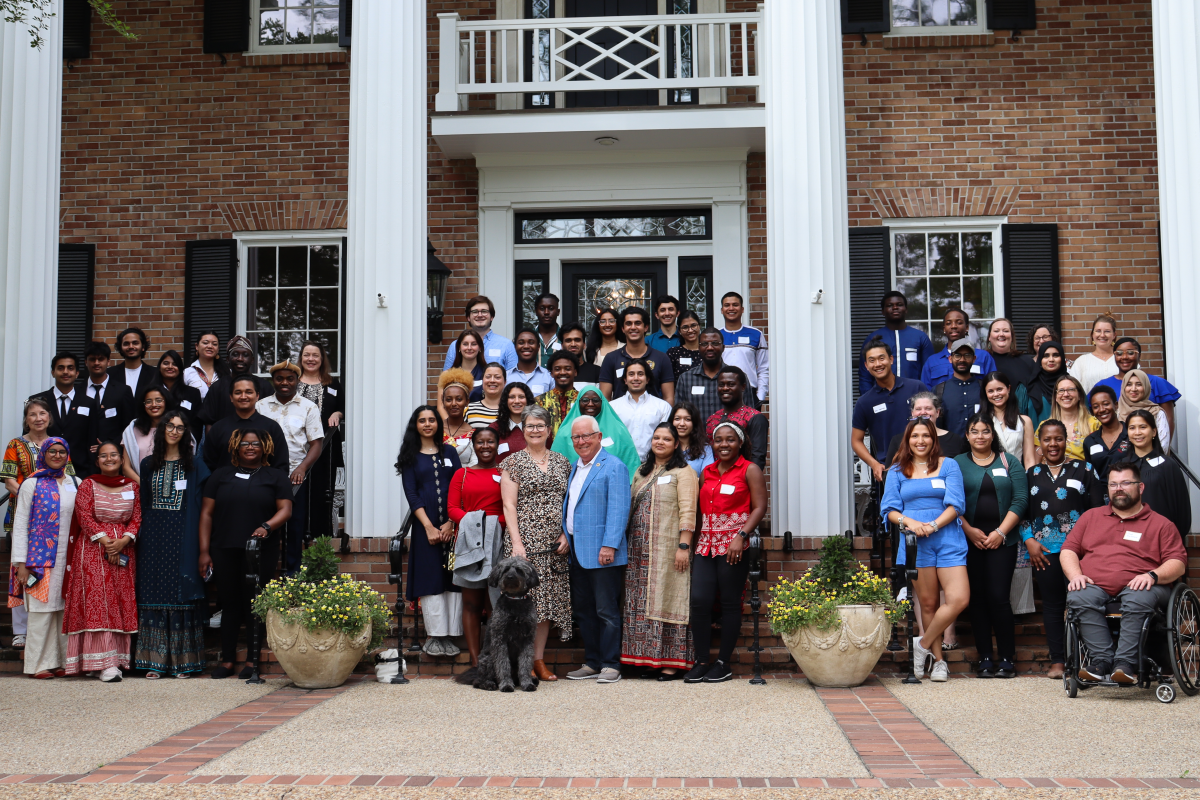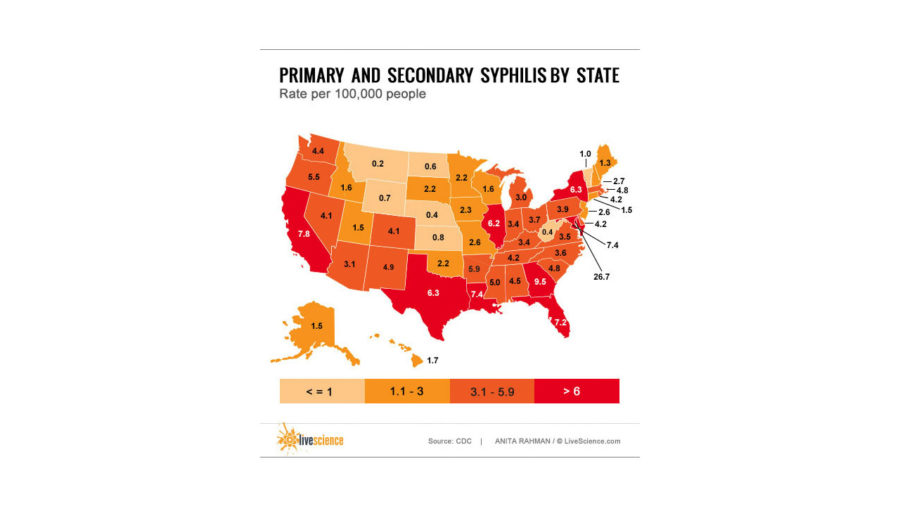The number of cases of syphilis tripled in the Magnolia State between 2013 and 2016, according to the Mississippi State Department of Health.
Since the increase, health providers are being vigilant and trying to identify patients’ sexual behaviors.
The Clarion-Ledger reported that “there has been a drastic increase in reported syphilis cases throughout the state,” according to state epidemiologist Paul Byers. Data from the Mississippi State Department of Health shows that 290 cases of syphilis were reported in the state in 2013.
In 2016, 821 primary, secondary and early latent syphilis cases were reported. According to the Center for Disease Control and Prevention, one in two asexually active young people will get an STD before the age of 25, and most will not know it.
College students at The University of Southern Mississippi may be unaware they have the STI.
Chlamydia, gonorrhea and syphilis are all asymptomatic. However, syphilis is not seen as often as chlamydia and gonorrhea at Southern Miss. In 2015, a total of 886 tests were administered. Of those, 15 tested positive for gonorrhea and 94 had positive chlamydia results. In 2016, there were 887 tests administered. Of those, 16 were positive for gonorrhea, 85 for chlamydia and 15 tested positive for both gonorrhea and chlamydia.
Moffit Health offers testing for chlamydia and gonorrhea as a part of the standard STI screening protocol because of how common sexually transmitted diseases are on college campuses.
The Center for Disease Control and Prevention’s theme for STD Awareness Month focuses on syphilis.
Health Educator and Promotions Coordinaor at Moffit Health Center Kayla Johnson said there are numerous factors that could be associated with the drastic rise in syphilis.
“It’s hard to say whether the increase in number is because we aren’t checking for [syphilis] like we were or if it’s that people don’t know what to look for and they don’t know that they have it and they are sharing it,” Johnson said. “Or it’s that people are being more promiscuous now than they were in the past.”
Certain behaviors would lead a provider to recommend a screening for syphilis.”
However, there has not been any recent cases of syphilis found by tests administered at Moffit Health.
Moffit Health has seen a rise in Plan B over the last year.
Aside from offering one form of contraception, Moffit Health also has Plan B One-Step. Plan B is an emergency contraception and/ or backup plan that helps prevent pregnancy when taken within 72 hours (three days) after unprotected sex or birth control failure.
“A lot of times we will see it used as a form of contraception. Yes, it’s a form of contraception but for emergency,” Johnson said.
Johnson believes that not all information is accurate about STIs and STDs.
“Therefore, without foundation and understanding you could be putting yourself at risk,” Johnson said.
Johnson said there are many common myths associated with the transmission and testing of STDs and STIs.
“‘You can tell if someone has an STD by looking,’ ‘I’ve only had one partner so I don’t need to get tested for STDs,’ ‘If I needed to be tested, my doctor would automatically test me,’ ‘I don’t have symptoms, so I don’t need to be tested’ or ‘You’re not going to sit on a toilet and get HIV, it’s all about bodily fluid,’” Johnson said.
Moffit Health offers students and faculty PReP, an FDA-approved, pre-exposure prophylaxis which is a daily pill that lowers the risk of HIV infection. However, PReP does not prevent the risk of other infections. Moffit Health also provides “condom distribution centers” in residence halls around campus.
“Each residence hall at the front desk has a box that are stocked with these [condoms],” Johnson said.
Students can stop by Moffit Health on campus to get condoms at no cost.
“It’s kinda in a corner there so no one can see you,” Johnson said. “It’s very private, the only person who would know is you and maybe someone who’s gotten them before,” Johnson said.
If you have any questions about safe sex and STD/STI screening, contact Moffit Health Center at 601-266-5390.










































